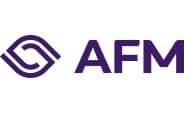
State of the Auditing and Reporting Industry 2025 highlights developments in the accountancy sector and financial reporting
Across different types of audit firms, the AFM observes differences in the use of additional expertise during statutory audits, known as consultations. About one-third of audit firms with a regular licence use consultations, compared to one-quarter of PIE audit firms. We also see an increase in the percentage of non-PIE audit firms with a written policy for performing root cause analyses. In developing and formalising this policy, there are differences between large, medium-sized, and small non-PIE audit firms. Additionally, the number of desktop reviews with questions about issuers’ reporting is declining. These and other insights are presented in the AFM’s report State of the Auditing and Reporting Industry 2025, published as a supplement to Trend Monitor 2026.
Percentage of statutory audits with consultations differs by audit firm type
Audit firms must ensure that statutory auditors seek advice from competent persons when necessary and record this in the audit file. This process is often referred to as consulting. In 2024, consultations occurred in an average of 32% of statutory audits at non-PIE audit firms, with large firms consulting most frequently (40%) and small firms least (14%). PIE audit firms consulted in 25% of statutory audits, more often in PIE audits (38%) than in regular audits (23%). Both types of firms consult on similar topics, such as the auditor’s report, going concern, and fraud/corruption.Increase in non-PIE audit firms with written root cause analysis policies
Policies for performing root cause analyses may be written, informal, or absent. We see a slight increase in the number of non-PIE audit firms with written policies, with the highest share among large firms (56%). For small and medium-sized firms, this figure is 28%. Developing and formalising these policies is important to strengthen learning capacity by identifying what works well and what can be improved.Decline in desktop reviews with questions about reporting
Each year, the AFM conducts desktop reviews to assess parts of issuers’ reporting against laws and regulations. The share of reviews with questions has decreased from 87% for the 2019 financial year to 65% for 2023. These questions sometimes lead to further actions, such as agreements, informal announcements, formal announcements, or announcements with recommendations.State of the Auditing and Reporting Industry 2025 provides data-driven insights
Through this report, the AFM shares insights based on data reported by audit firms and outcomes of supervision of issuers’ reporting. These insights cover general developments, such as market share, substantive versus controls-oriented audits, and notifications, as well as quality control topics like consultations, professional practice support, root cause analysis policies, independence threats, and training. Finally, the report addresses fraud and reporting by issuers.
Contact for this article

Would you like to receive the latest news from AFM?
Subscribe to our newsletter, we will keep you up-to-date.